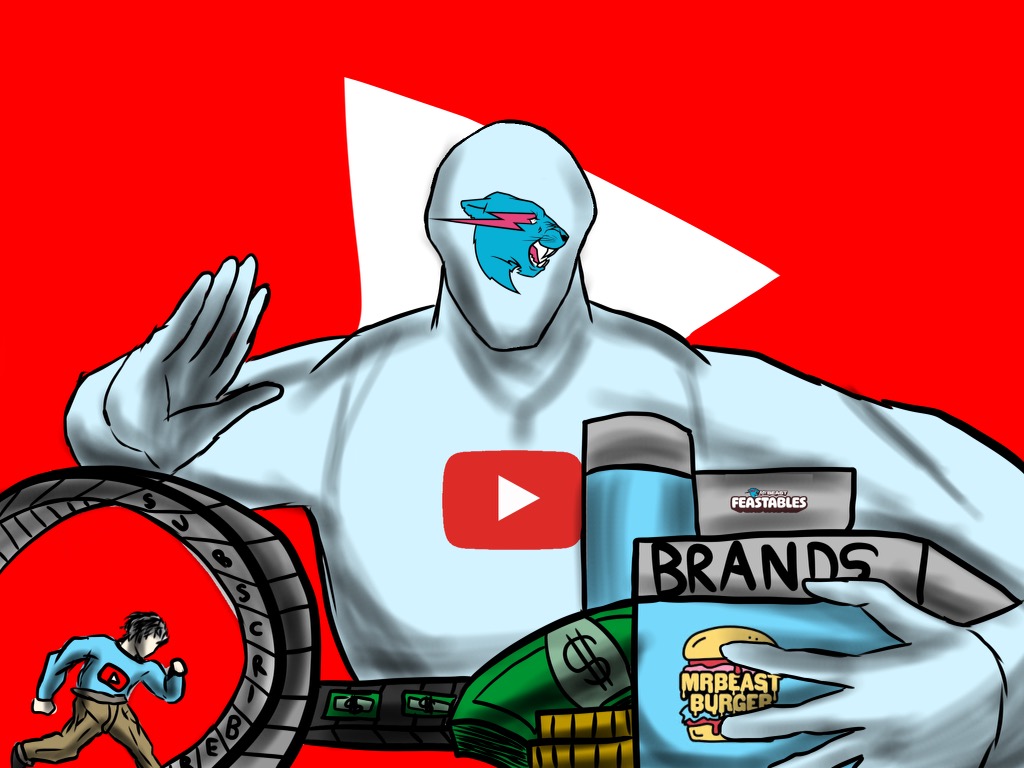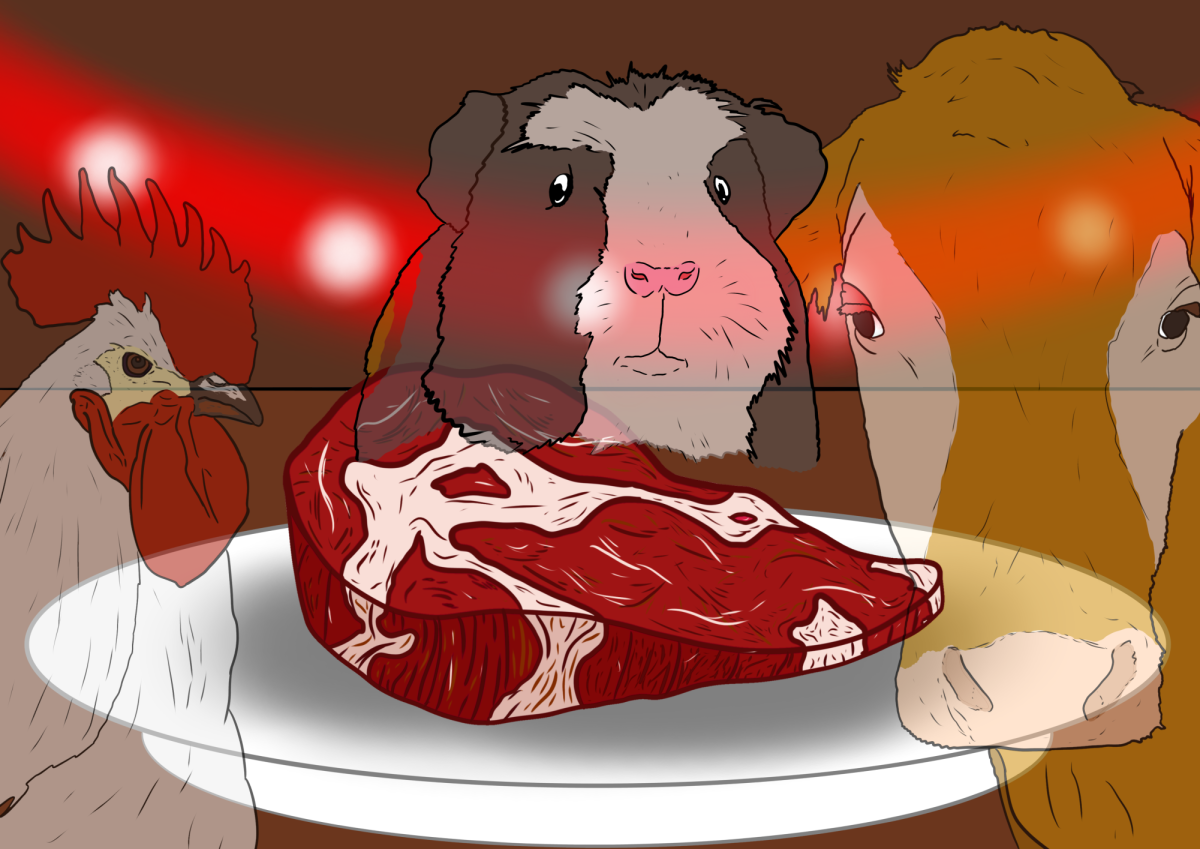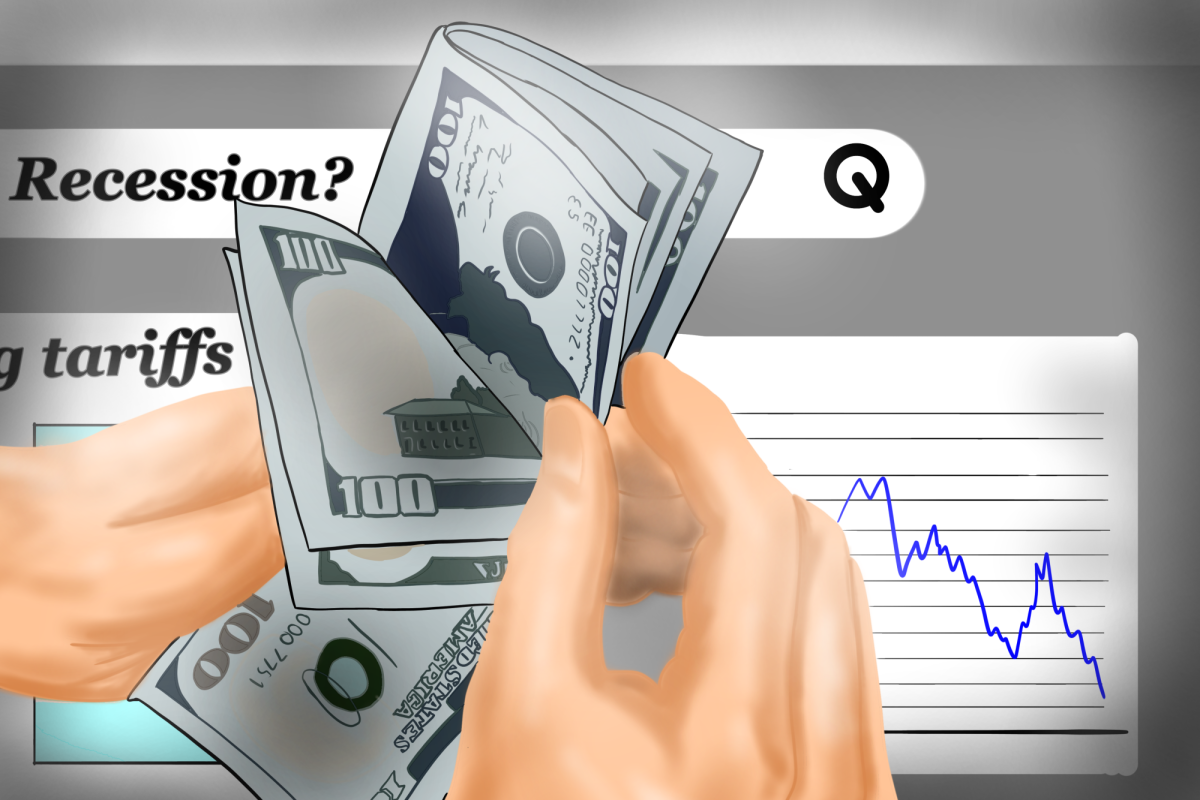To never have scoured the depths of YouTube at any point in life is arguably a nearly impossible task. With mass media at our fingertips, influencing our every thought, it is unlikely that our everyday social media influencers have had little to no effect on any reader of this article. Although social media influencers maintain a relatively positive relationship with the public — as they are able to advocate for certain issues, raise awareness on passion projects and have fun in the process — their benefits to society are limited. That is, there are instances in which influencers may cross lines of philanthropy into a more self-indulgent and materialistic intent, exploiting their fans and consumers in the process, even if they are unaware of it.
One of the most obvious examples of this is with popular internet personality James Donaldson’s — more commonly known as MrBeast — recent branding expenditures.
Beginning his career as an eccentric YouTube video creator in 2012, who mainly curated video game content and comically guessed the net worth of other YouTubers, Donaldson eventually shifted to posting videos featuring his production team completing various stunts and challenges that would lead to millions in profits. With significant success and revenue under his belt, Donaldson founded his philanthropic brand, Beast Philanthropy, in 2020 “to leverage the power of social media to raise funds and help charitable causes around the world,” according to the Beast Philanthropy website. While the work that he has done thus far cannot be discredited, the legitimacy of Donaldson’s intentions are under fire.
Released in the same year as Beast Philanthropy, Donaldson began promoting his debuted brand, MrBeast Burger, his own “virtual restaurant brand,” according to the MrBeast Burger website, that operates across the U.S. within existing restaurants, “allowing restaurateurs to add a new source of revenue without impacting the operation.” In 2022, Donaldson released another business operation, “Feastables,” a chocolate bar production service tied to his own name and profits. While this merchandise was clearly created with the sole purpose of accruing more interest, worse than that is Donaldson’s open exploitation of consumers, as he recently announced the release of his newest collaboration with Logan Paul and Olajide Olatunji, more commonly known with his influencer and professional boxing name, KSI: “Lunchly.”
Advertised as a direct counter to the popular Kraft-Heinz lunch meal for adolescents, “Lunchables,” “Lunchly” has three main offered courses: Turkey Stack ‘Ems, The Pizza and Fiesta Nachos. Each lunch comes with an entree, Feastable bar and PRIME hydration drink, which was created two years prior during a separate collaboration between Paul and KSI.
Even though it is publicized as a healthy alternative to Lunchables — as it even includes an “US vs. THEM” tab on their website to display the nutritional differences — Dr. Dimitar Marinov, a medical professional specializing in Nutrition and Dietetics and holding a Ph.D. in Preventive Medicine and Nutrition, commented to Healthline that Lunchly is inappropriately advertised, as it is “not a source of nutritional powerhouses … but instead are a form of processed food.”
“Paul and MrBeast are probably giving parents the wrong idea by labeling Lunchly as a ‘healthier’ option,” Marinov said.
By feeding such fabrications to parents and children alike, consumers and fans are exploited for their wallet, something that Donaldson himself has claimed to work against.
So-called “philanthropists” like Donaldson are not the only ones who abuse their popularity and reputation to gain excessive monetary benefits.
TikTok influencer Addison Rae and American actress Blake Lively have also released their own product lines for cosmetics and hair care products. While one can acknowledge that seeking out multiple occupations is in no way unheard of, there comes to be a time when creating an entire brand of products for the sake of profiting off of it is blatantly distasteful.
Some may even argue that there have been many instances in which advertising and distribution for influencers’ brandings have been not just lacking in sincerity, but have been entirely unethical.
For instance, Jaclyn Cosmetics, named for YouTube influencer Jaclyn Hill, closed down on Jan. 31 because of frequent consumer complaints after its initial launch. “Hairy lipstick among other quality issues” was just one example reported in Beauty Packaging earlier this year. On a separate note, Lively has received backlash for the promotion of her hair line, Blake Brown Beauty, as it was emphasized at the same time of her “It Ends With Us” press tour.
Opposing viewpoints might believe that the branding of influencers actually greatly helps the economy, as there will be more cash flow and influencers are greatly able to connect to demographics of interested viewers. Although this is true, it does not justify how influencers and public figures, including Donaldson, Lively and Hill have crossed the line from supporting their viewers and acting as orators and large sponsors for their communities, into mainly seeking out profits for their own self-gain. If the reality behind Lunchly is not actually benefiting youth health, if Blake Brown is not righteously advocating for the issues it is presented alongside and hairy lipstick is found among a newly opened Jaclyn Cosmetics makeup kit, then what is the point of these businesses other than exploiting fans for their profit margins?
It is time we stop feeding into the trends and glorified products made by influencers. It is time we stop pouring money into the pockets of millionaires just because of the name that is tied to the product. Philanthropy is charitable, but exploitation of fans for the sake of monetary gain is not.









